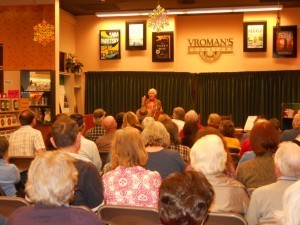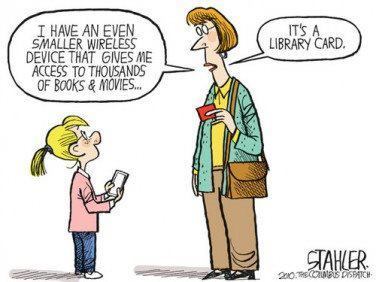Sara Paretsky's Blog, page 14
February 21, 2012
What is Too Political for Fun?
Every time I publish a book, I know I'll get some angry letters, and readers response to Breakdown proved no exception. "I just threw away my hardcover copy," one reader wrote. "Keep your politics to yourself. I read for fun," wrote another. I will say that the positive mail outnumbered the negative by over 10 to 1, but the negative mail does give me pause. "Why do you hate rich people?" One reader asked. "They're always your villains." Another asked why I hate conservatives.
First of all, like Shylock, I bleed when you prick me, so angry letters do sting, but they also make me start wondering what my writing should and shouldn't be.
Second, I don't try to write political novels. I write novels that spring out of contemporary social issues, because those provide a fertile field for crime. I come from a place where radio and TV shows routinely call the President "A Muslim terrorist," or "Muslim socialist." The leader of the state legislature recently sent an email to his "A" list calling for prayers for the President's death and referred to the First Lady as "Yo-Mama." Tea party rallies, in their heyday, would show caricatures of the President with crude racial slogans.
These political/social realities caused me to create an African-American politician who gets subjected to the same abuse that has been ladled onto the President. I don't know if that makes the book so political that it can't be read for entertainment. After all, that's what I am–an entertainer. Would my books be more entertaining if they featured disputed wills and missing children, instead of people struggling with First and Fourth Amendment freedoms?
My novel Blacklist actually featured a villain who had impeccable progressive credentials but some readers hated it because it also included an Egyptian boy who was a refugee on the run–for those readers, Blacklist was too political–they said I was siding with terrorists. Like President Obama, apparently.
I don't know what the answer is, as I start work on a new novel. How much should I shape my writing, my story-telling, in response to your expectations?
February 12, 2012
A Farewell to Arms, or at least to Touring
I was on the road with my new novel, Breakdown, from the first of January until February 2, so I substituted little snippets on Facebook for my blog. Being on tour is a privilege and in many ways a pleasure because of the different bookstores and readers you encounter, but the downside is you are only in any given city for about 18 hours–you really come with the dust and go with the wind. My 18 hours in the LA area were particularly wonderful. Beloved friends who I don't often see drove over to Pasadena for my event at Vroman's bookstore.

Reading at Vroman's in Pasadena
After dinner, we went up to the lounge in the Langham hotel where they have a typewriter Ernest Hemingway used when he was covering World War II from London. Guests were invited to write a letter on the machine, and I did so, sending one to my friend and mentor Dorothy Salisbury Davis. Those of you who know Ms. Davis know that she never has migrated to a computer, and continues to write on her old upright, so it seemed fitting. I learned to type on a manual Underwood myself, but I had forgotten how much wrist strength is needed to hammer those keys. I gave up after a couple of paragraphs filled with overstruck letters from jamming the keys. A couple of Canadian journalists who were in the lounge wanted to show off for my friend and her 14-year-old daughter, so they started pounding away, only to discover that they, too, had lost the magic of the manual machine.

Showing off with Hemingway's typewriter
I don't seem well-organized mentally these days. Every place I went on the road I left something behind, usually not an object of huge importance, but I abandoned my iPad in Palo Alto, and without the generosity of Sherry Barson, who was driving me, I would have been a sad and sorry writer. Sherry added two hours to her homebound commute to make a rendezvous with the event coordinator, retrieve my iPad and bring it to my hotel, which was as far from her own home as could be imagined. Another good Samaritan was United flight attendant Kelly Linn, who found my journal in the pocket of my airplane seat and took the trouble to track me down and mail it to me. I don't know what's wrong with me these days–hope it isn't plaque build-up in the brain–but I am definitely not firing on all cylinders. Perhaps after a month of puppy therapy with my Golden all will return to more or less normal.
My luckiest event of the tour was my trip to Toronto to take part in the Toronto Star's "Star Talk" series at the Toronto Public Library. I got to the airport at 6:30 in the morning so I could catch the early flight, but the Toronto airport was shut because of dense fog. After sitting at the airport for 8 hours, doing my back exercises behind a row of chairs, wandering from food bar to food bar, our flight was suddenly called. We were the only flight to make it in from Chicago that day, and why they cleared us I'll never know–we couldn't see the ground in Toronto until our plane was level with the Harbor front skyscrapers–but I got there just in time to take part in the series. It was a great event, well organized and incredibly well attended, and a brilliant conversation afterwards at dinner with the paper's publisher and editor and a woman from the library. They were inveighing, as we in Chicago have been doing, about cuts to the library budget. Margaret Atwood has been a passionate advocate for the library, but the mayor of Toronto said he'd never heard of her and didn't care what she had to say! However, their city council certainly had and forced the mayor to back down. I wonder if Rahm has heard of me, Stuart Dybek, or any of the other writers who have been trying to get our libraries back up to full staff and full hours?
December 14, 2011
Breakdown Contest
Sara's hosting a contest on facebook page to celebrate the release of Breakdown. To enter, fill out the multiple choice questions about Breakdown, Body Work, and the other books you can read right here on the site. Grand Prize is a walk on role in V I's next adventure!
November 29, 2011
Good News on the Budget Frontiers
My native state, Kansas, has so little money that the governor cancelled the state arts program, tried to eliminate all funding for family planning, slashed budgets for judicial support staff–putting court dates far into the future for many defendants–and even eliminated funding for a place that cares for severely brain-damaged adults, including many returning veterans. However, good news! He has enough money to monitor every mention of his name on the World Wide Web, including a tweet by a suburban KC teen who told all 65 of her followers that "he sucked." Today, Emma Sullivan has 11,000 Twitter followers, thanks to Governor Brownback: the gov went to her high school principal after finding the tweet and demanded that Ms. Sullivan provide a written apology. The principal agreed.
I've been interested to read some of the worldwide coverage. Of course this story makes perfect pundit-fodder, and many pundits have sternly chastised Ms Sullivan for her rudeness in saying Mr. Brownback "sucks." Perhaps she should have said, in 140 characters, "The governor's style closely approximates that of Attila the Hun, or perhaps the angel of death, and our state will bear the scars of his destructive scythe for decades to come."
(As of today, after the story went viral, the governor and principal have decided they "over-reacted." Ms Sullivan need not apologize. The gov said free speech was our most "treasured" freedom. I don't know if this is the place to point out that the First Amendment, which guarantees our freedom of speech, includes that pesky little separation of church and state clause. Which Mr Brownback apparently thinks is a fly speck on the Constitution, since I've been told that a number of his staffers begin meetings by saying, "I'm a Christian and we start meetings with Christian prayer." The Kansas legislature also has a chaplain who hands out photocopies of Bible texts to state agencies to start the week with a bang. Or so I've been told–I will confess that I haven't experienced any of this directly.)
Closer to my current home, Chicago, our state attorney general went to court to enforce the state's parental notification law for pregnant teens seeking abortions. In going to court to support the law, Ms Madigan, whom I've always liked and supported, went a little overboard: she said the state constitution's guarantee of citizens' rights to privacy doesn't include our right to keep an abortion private. I think the logical next step is a law requiring all abortion providers to operate in open-air tents so that everyone can watch. Like Kansas, Illinois has major and serious budget issues, but, like every other state in the union, not to mention the U.S. Congress, the only legislation our state gets really enthusiastic about is how to add ever more burdens to women of all ages who want contraception or abortion services. (As of today, November 29, the circuit ourt ruled with Ms Madigan.)
I forgot one arena where we have a lot of enthusiastic legislation: making it illegal for citizens to video cops. When police sprayed pepper spray into protestors' eyes on the UC-Davis campus, they claimed it was in response to student violence. A video of the scene showed no crowd violence, just a row of seated people getting sprayed as if they were aphids on the tomatoes. In a November 28 column, Leonard Pitts recounts the story of Emily Good, who was arrested for videotaping a police traffic stop in front of her house. He goes on to detail a number of jurisdictions that are passing laws against photographing the police in the performance of their duties.
We are a society under constant surveillance by our government. We're a society gripped by fear, and there's nothing like surveillance to add to paranoia. But we're also a society with huge economic problems. I'd love to see our legislators grappling with those problems for a change.
November 25, 2011
Happy Thanksgiving
To all friends near and far, new and old. I am grateful for another year with such good friends, grateful for my cousin Barb and her intrepid spirit, serving in the Peace Corps far from home, to my friends who keep small bookstores going, living on the most minute of salaries to keep the living words of books alive, to my husband, for caring for me with all my ups and downs, to all men and women in uniform who are on our streets or on streets in remote countries, to my family, my granddaughter, the more people I name, the more I know I'm overlooking, so forgive me for not mentioning you: you are in my heart even if not on my forgetful lips.
What I would like less of in the year to come: war, mean-spiritedness, religious zealotry, political zealotry, disrespect, homelessness, worrying about making it to the next paycheck or the next shelter to find a meal, lies about how much radiation came out of Fukushima, lies about people who can't find work, lies about pollution, poverty, God, women, men, children, dogs, cows…
What I would like more of: peace, peacefulness, play, playfulness, homes, jobs, a time not to work, a time not to be online, time with friends, more time with friends, did I say peace?
November 19, 2011
Why I Write
Publishers Weekly invited me to contribute an essay to their weekly "Why I Write" column. My piece ran on November 18; for those of you who, like me, don't have a subscription to PW, here's the essay:
Years ago, when I was in my twenties, I heard an interview with the composer Aaron Copland. The interviewer asked why it had been over a decade since Copland's last completed composition. I thought the question was insensitive but Copland's answer frightened me: "Songs stopped coming to me," he said.
I wasn't a published writer at the time, but I was a lifelong writer of stories and poems. These were a private exploration of an interior landscape. My earliest memories include the stories that came to me when I was a small child. The thought that these might stop ("as if someone turned off a faucet," Copland also said) seems as terrifying to me today as it did all those years back.
I write because stories come to me. I love language, I love playing with words and rewriting and reworking, trying to polish, trying to explore new narrative strategies, but I write stories, not words. Many times the stories I tell in my head aren't things I ever actually put onto a page. Instead, I'm rehearsing dramas that help me understand myself, why I act the way I do, whether it's even possible for me to do things differently. Where some people turn to abstract philosophy or religion to answer such questions, for me it's narrative, it's fiction, that helps sort out moral or personal issues.
At night, I often tell myself a bedtime story—not a good activity for a chronic insomniac, by the way: the emotions become too intense for rest. When I was a child and an adolescent, the bedtime stories were versions of my wishes. They usually depicted safe and magical places. I was never a hero in my adventures; I was someone escaping into safety.
As a young adult, I imagined myself as a published writer. For many years, the story I told myself was of becoming a writer. Over a period of eight years, that imagined scenario slowly made me strong enough to try to write for publication. After V I Warshawski came into my life, my private narratives changed again. I don't lie in bed thinking about V I; I'm imagining other kinds of drama, but these often form the subtext of the V I narratives.
I'm always running three or four storylines: the private ones, and the ones I'm trying to turn into novels. I need both kinds going side by side to keep me writing.
Storylines are suggested by many things—people I meet, books I'm reading, news stories I'm following—but the stories themselves come from a place whose location I don't really know. I imagine it as an aquifer, some inky underground reservoir that feeds writers and painters and musicians and anyone else doing creative work. It's a lake so deep that no one who drinks from it, not even Shakespeare, not Mozart or Archimedes, ever got to the bottom.
There have been times when, in Copland's phrase, the faucet's been turned off; my entry to the aquifer has been shut down. No stories arrive and I panic, wondering if this is it, the last story I'll ever get, as Copland found himself with the last song. If that ever happens permanently, I don't know what I'll do.
So far, each time, the spigot has miraculously been turned on again; the stories come back, I start writing once more. Each time it happens, though, I return to work with an awareness that I've been given a gift that can vanish like a lake in a drought.
November 6, 2011
Testimony Before the City Council
(On Wednesday, November 2, I joined Robert Wislow and Stuart Dybek in presenting testimony to the Chicago City Council in defense of the library system. Since people who weren't there have wanted to see my remarks I'm posting them here.)
My name is Sara Paretsky and I am here today to speak against proposed library closings. I'm a writer who is best known for a series of novels featuring V I Warshawski, a private eye who solves crimes on the mean streets of our beloved city. My novels are translated into thirty languages; in a modest way I contribute to Chicago's cash flow because readers come from as far away as Australia and Japan to explore V I Warshawski's Chicago.
I am also well known for the meticulous quality of my research. In addition to getting expert advice from Chicago cops or business figures, I rely on three libraries: the University of Chicago, which is walking distance from my home; the Newberry, a premiere research library, and the Chicago Public Library.
This past September, I chaired a panel at an international conference of readers and writers in St. Louis. To prepare, I read works by all the members of my panel. Books by one of them, the distinguished cultural historian Dr. Frankie Bailey, were not available at the University of Chicago, or Northwestern, or the Newberry. Nor could I find them at Amazon or my local bookstore. The only place they were available was at the Chicago Public Library. Similarly, several years ago when I was invited to write an introduction to a special edition of The Maltese Falcon, the CPL was the one library in Chicago that had all resources I needed.
When I first came to Chicago in 1966, the library here was bigger but not much better than the one in my home town in eastern Kansas. In the last twenty-five years, though our library has become one of the nation's pre-eminent institutions, both for the size and quality of its collections, and for its knowledgeable, helpful reference and general staff.
It takes a quarter century to build such a collection and such a staff, but it can be destroyed overnight.
The proposed budget cuts to the library would do just that.
In these very difficult economic times, people are turning to their libraries in far greater numbers than they did during our country's prosperity. Library usage is up by twenty-five percent across the board from what it was in 2007. People are going there to use books and DVD's they can no longer afford to buy for themselves. They are using library computers and library reference staff to help in their job searches. Children who need a safe place to go to after school are using the library—and getting an extra chance to learn in the bargain. People are flocking there for book discussions and for story hour, as they expose their toddlers to the wonderful world of the written word.
It would be not just cruel but short-sighted to close branches and cut people off from these resources and activities. It is cruel and unreasonable to imagine that people who turn to their branch libraries, particularly the frail and the indigent, can just hop on a train and use the central library—especially now that we are making steep cuts to our transit system. Furthermore, the central library is not equipped to take up the slack in reading programs and computer and staff resources that the local branches provide.
Perhaps we could balance the budget overnight by closing our branches, but it would be at a great long-term cost. A city is more than its bottom line. It consists of the lives and dreams and jobs of its residents. If we want a city that is vibrant twenty-five years from, we must have an educated workforce.
Every week we see another story in the papers about how far American children lag behind the rest of the developed world in reading and math skills. And just this past week, the Chicago Tribune reported that Illinois students lag behind much of the rest of the nation. To close our libraries at a time like this would further punish our children at a time when they most need help.
The Preamble to our nation's Constitution lists six goals for the document that made us a nation. Two of these are "to secure the blessings of Liberty to ourselves and our Posterity," and "to promote the general welfare."
A people can only be free if it is literate; we will lose the blessings of liberty if we turn our backs on the resources we most need to create a thinking informed electorate.
We Chicagoans have entrusted our welfare to the hands of the mayor and the City Council. I implore you not to abuse this trust, but to restore the library's funding.
Thank You.
November 3, 2011
And the winner is…
Many thanks to everyone who took part in the "Name the Flashlight Slogan" contest. The ideas were all unusual and wonderful, and it was hard to choose a winner. We finally settled on: "V I Warshawski, matchless for 30 years" and Matea Varvodic has won an early copy of Breakdown.
October 31, 2011
There is no frigate like a book
And no harbor like a library ,where those who love books but can't afford their own complete collections, or those who need a computer, or kids who need a safe place to read after school, or moms with toddlers who want their babies to learn to read, can all come together and share in a great community resource.
The economic collapse has sent millions more Americans to their public libraries than used them in the past–25.4 million in 2009 compared to 20.3 million in 2006. These are people who went to the library at least 20 times a year,not the ones who go in once or twice. An additional 51 million Americans used their public libraries by remote computer–so one in four of all our citizens, including newborns and those in nursing homes, are using their public libraries.
The Chicago public library has already made deep budget cuts in the last three years: there's been a hiring and promotion freeze, so that many branches are understaffed. Hours have been cut. Perhaps most worrying of all, acquisitions have been frozen. No new books. For the indefinite future. If the economy recovers, you can build up new staff relatively quickly, but you can't go back in time to acquire books that will have gone out of print.
I use three libraries in Chicago–the University of Chicago library, which is a ten-minute walk from my front door, the Newberry, which is a research and scholarly library, and the Chicago Public Library. When I chaired a panel this past September at the Bouchercon, the CPL was the only one of those three libraries that had books by some of the authors I was introducing. When I wrote an introduction to a special edition of Hammett's The Maltese Falcon, the CPL was the only library that had all the biographies I needed to consult. The Vivian Harsh collection is second to none in its coverage of African-American history and notable African-Americans in the arts and I have used it far more often than the university library's special collections.
Please, Chicagoans: the future of our library is in the balance. The next budget hearing is November 2. Please call your alderman and urge him or her to save the library budget. It could be your kid who needs that place for a research project, it could be the book you want the library isn't buying, it could be your job search you can't conduct because the library is shut, or isn't upgrading its computers.
Libraries in every jurisdiction in this country and in the UK are under similar threat. If you live outside Chicago, the American Library Association can help you find out your library's status, and how to take action to protect it.
October 12, 2011
The printed word
Is not a spent force. On October 11 I attended the dedication of the University of Chicago's new library, the Mansueto library. At a time when many libraries, public and private, are cutting acquisitions to the bone, or moving books to remote storage facilities, the U of C has made a bold and strong commitment to the printed word. The building itself, designed by Helmut Jahn who perhaps can be forgiven in time for the United Terminal at O'Hare, looks like a space module, but the students adore it; kids wait in line for seats in the reading room.

The Mansueto library at sunset
The library has underground storage space for 3.5 million books, whose call numbers we hope have been entered correctly, since all the retrieval will be done by robots. The library is space age meets writing.
I learned a few fun factoids at the opening, which I'll pass along. The famous library in Alexandria, whose collection burned down, stole some 200 scrolls from Athens–the collected works of Euripides, Sophocles and Aeschylus disappeared forever when the library burned down. The Sorbonne library is the oldest university library in the west, and the first institution to work with Arabic numerals instead of Roman.
Google books has digitized original works in a random way, so that you get parts of different editions of books by Eliot or Dickens or Austen–if you want to get the complete copy of a particular edition, do try to use the printed book. Which, I also learned, is called a codex.






